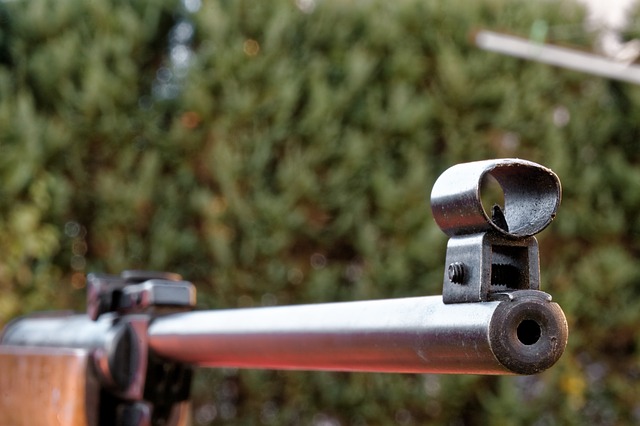This article contains affiliate links. If you make a purchase after clicking on a link I may earn a small commission at no extra cost to you.
Tips To Protect Your Air Gun
Metal attracts rust. In order to keep your air gun operating properly you must take care in how it is stored to prevent corrosion from developing.
The primary culprit in the war against corrosion is water. Moisture creates the conditions that result in rust. Protecting your firearm from moisture will reduce the risk.
Here are four tips on how to do just that.
1. Take Control of the Humidity
Too much humidity leads to moisture build up. It is damaging to homes and health. Plus, increased dampness is not good for your air gun. Even the smallest amount of water that touches your firearm can start the rusting process. Humidity is airborne water vapor and this is just as damaging.
The safe storage humidity for guns is 50%, as stated by the National Firearms Museum. Higher humidity assists rust in developing and lower humidity may dry gunstocks to the point where they may crack or warp out of shape.
Keeping your firearms secure in a gun safe that contains a dehumidifier is an effective way to prevent moisture from developing. Gun safe dehumidifiers come in many sizes and styles. Electric as well as reusable desiccant style dehumidifiers work well to control humidity and protect your gun while in the safe. They work by heating up the air inside the gun safe, as well as extracting the moisture from the air. They are also well priced.
2. Bad Weather Spells Bad News
Not only is it not fun to be out in bad weather for extended periods of time, it can also have a negative effect on your gun. Just by exposing your firearm to outdoor moisture such as rain, snow or sleet, you risk corrosion development. Always try to keep your gun as dry as possible to reduce the risk of corrosion forming.
As soon as the weather turns, get your firearm under cover. If it happens to get wet in the process, ensure that you have dried it off completely as soon as you can. If you think of corrosion as a ticking time bomb that gets activated as soon as the metal on your gun gets wet, you’ll be careful to keep it dry.
3. A Clean Gun Is A Safe Gun
Responsible gun owners understand the importance of regularly cleaning their weapons. It is a good habit to develop and if you keep yours clean, you will reduce the chance of a problem with rust developing.
Cleaning involves removal of gunpowder build up and additional debris that collects over time. This additional debris can also retain moisture and encourage corrosion.
4. Spray Your Gun For Added Protection
As part of your gun cleaning routine, the final stage should be to apply a light coat of a high quality anti-rust spray. Look for a brand that do not use solvents, animal by-products or contain high volatile organic compounds (VOCs). Wood gunstocks may be damaged by these types of anti-rust sprays.
5. Don’t Sweat The Small Stuff
Should you find yourself outdoors on a hot, sunny day and you have been sweating while using you gun, beware. The salt in your sweat can contribute to rust formation. However, if you act fast and wipe your firearm down with a cloth containing a light oil, it will replace the sweat with a thin oil layer.
You will be able to find a good gun oil as several exist in the marketplace. Choose one that is either silicone or mineral based. The goal is to coat the metal of your gun with a protective layer of oil that will keep moisture and air at bay – the two components required to start the rusting process.
6. Put A Sock On It
Gun socks are effective pieces of storage equipment. You just slide your gun into one, or slide the sock over your firearm. They are made from a thick fleece fabric that wicks away moisture and traps it in the silicone and rust preventative base of the sock’s inner lining.
7. Zip It Up
Another anti-corrosion tool you can use to protect your weapon is a Vapor Corrosion Inhibitor, or VCI. This is a zippered pouch that contains an impregnated sealant layer and a foil barrier layer. It creates a vacuum ‘seal’ that keeps moisture away from contacting the firearm.
8. Vapor Emitters
The last option available to gun owners is a handy little device called a vapor emitter. Essentially these come in the form of strips or self-adhesive cups that sit inside a gun cabinet or safe. These last up to two years and control the moisture content inside the gun storage unit.
Keep Corrosion As Your Primary Target
By controlling the moisture that comes into contact with the metal parts of your air gun, you halt the development of corrosion and rust. Left unchecked they will damage your firearm to the point where you will not be able to use it.
Prevention is always better than cure, and by utilizing some of the tips above, you can easily control moisture coming into contact with your air gun. By stopping moisture in its tracks, you will get years of enjoyment from your gun.
